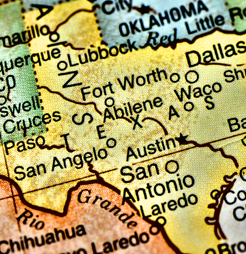
At the end of last week, the Mexican government filed an amicus curiae (friend of the court) brief before the Fifth Circuit Court of Appeals in New Orleans, La. Through this intervention, Mexico aims to support the preliminary injunctions of various provisions of Texas' anti-sanctuary law, ordered by the Federal District Court of West Texas.
On May 7, Texas Governor Greg Abbott signed into law Senate Bill 4 (SB 4). Days after Governor Abbott signed SB4 into law, the League of United Latin American Citizens (LULAC) and several Texan cities filed a lawsuit against it.
The statute prohibits agencies of the state, or its political subdivisions, from acting as illegal alien sanctuaries. As such, Section 752.053(b)(1) of SB 4 allows police officers and other state officers to inquire about the immigration status of individuals they detain:
Subsection (a), a local entity or campus police department may not prohibit or materially limit a person who is a commissioned peace officer described by Article 2.12, Code of Criminal Procedure, a corrections officer, a booking clerk, a magistrate, or a district attorney, criminal district attorney, or other prosecuting attorney and who is employed by or otherwise under the direction or control of the entity or department from doing any of the following:(1) inquiring into the immigration status of a person under a lawful detention or under arrest.In compliance withIn a press release announcing the amicus brief, the Mexican government erroneously argues that SB 4 "forces" police officers and other state officials to "interrogate individuals who they arrest about their immigration status." Per Section 752.053(b)(1), cited above, police are not prohibited from inquiring about an individual's status once detained or arrested, but they are also not required to ask, as the Mexican government claims.
Mexico's Foreign Ministry also holds that provisions of SB4 create regulations that are "different from those envisaged in federal legislation, which could lead to the selective application of the law in a discriminatory manner." And, when enacted, these regulations would be to the detriment of Mexicans who live or visit the state. Moreover, the Mexican government believes that sections of SB4 would adversely affect its relationship with Texas and hamper effective collaboration, as well as trade between Mexico and the state.
While the Mexican Foreign Ministry goes on to recognize the sovereign right of each country to determine its domestic policy and legislation, it clarifies that it will move to exercise its "undeniable obligation" to protect the rights of Mexican migrants in the United States. The foreign government then reiterates that laws like SB4 create spaces for possible acts of racial discrimination, and foster an environment of persecution. Therefore, the government of Mexico will continue to provide a timely follow-up to the legal process against SB4.
Finally, the press release notes that through the Mexican Embassy in Washington, D.C., and its consular network in Texas, the Mexican government will pursue all possible actions within its reach, including legal action, to guarantee due process and to avoid violations of the rights of Mexican nationals, regardless of their immigration status.
In September, the State of Texas and Texas State Attorney General Ken Paxton appealed the District Court decision to enjoin parts of SB 4. As my colleague Andrew R. Arthur wrote, the Fifth Circuit issued a decision granting a request for a stay, in part. As a result, the most critical provisions of SB4, which prohibit the local implementation of sanctuary policies, are still in force.
